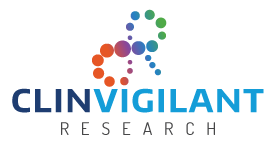
The process of creating a novel treatment involves several stages, each with their own set of challenges. The last step before proposing a novel drug for regulatory approval and commercialization is phase III clinical trials. These studies are meant to provide thorough and trustworthy information on the effectiveness and safety of the new medication in a sizable and varied patient population.
The purpose, design, advantages, and challenges of Phase III clinical trials will all be covered in-depth in this blog post. Additionally, we’ll discuss the significance of clinical data management in these studies and how it might aid in the creation of new drugs.
What is Phase III In Clinical Trials?
Before a novel medicine may be licensed for marketing by regulatory agencies such as the United States Food and medicine Administration (FDA) or the European Medicines Agency (EMA), it must first undergo phase III clinical trials. These trials are intended to give vital information regarding a new drug’s safety and effectiveness, as well as to assess its potential advantages and hazards.
Following preclinical testing and Phase I and Phase II clinical trials, a medication is normally subjected to Phase III clinical trials. Preclinical testing entails laboratory and animal research to evaluate the medicine’s safety and effectiveness, whereas Phase I and Phase II trials entail testing the treatment in a small sample of healthy volunteers and later in humans.
Phase III clinical trials are significantly larger and more sophisticated than Phase I and Phase II trials, and they involve a far higher number of participants. They are intended to test the drug’s efficacy in treating the target disease or condition as well as its safety over a longer length of time. The studies are also intended to confirm the drug’s appropriate dose and to compare the drug to other therapies or a placebo.
What Are The Benefits Of Phase III In Clinical Trials?
Phase three clinical trials are essential to the process of developing new medications and are advantageous for patients, medical professionals, pharmaceutical companies, and regulatory organizations. The following are some significant benefits of Phase III clinical studies:
Determines the Most Effective Dose and way of Administration: Phase III clinical trials aid in determining the most effective dose and way of administering the particular drug. This knowledge is critical for ensuring that patients take their medications at the optimal dosage to receive the desired therapeutic benefit while minimizing the risk of side effects.
Phase III clinical trials can assist identify the patient population who will benefit the most from a new drug. This information is crucial for using the medication in the right patient population and preventing needless risks for people who are unlikely to benefit from it.
Efficacy: In phase III clinical trials, the innovative medicine’s effectiveness is contrasted with that of already-accepted therapies or a placebo. For regulatory approval and marketing, this comparison establishes whether the new treatment is superior or non-inferior.
Phase III clinical trials generate a significant amount of clinical data that can be utilized to advance scientific understanding in a particular treatment area, enhancing our comprehension of the world. Researchers may be able to better understand illness mechanisms, find new treatment modalities, and enhance patient outcomes with the aid of this information.
Enhances Patient Access to New Therapies: Phase III clinical trials that are completed successfully can result in regulatory approval and the commercialization of the new drug, enhancing patient access to new therapies and possibly saving lives.
What Are The Challenges Of Phase III In Clinical Trials?
Phase III clinical trials are the last and most crucial stage of drug research before a new medicine is given the green light for marketing by regulatory bodies. These trials often involve many sites, a huge number of participants, and are extensive, complex, and expensive.
Patient Recruitment: Finding participants for Phase III clinical trials is one of the most difficult tasks. Finding enough qualified patients who are willing to take part in the experiment can be challenging. For uncommon diseases or ailments that only impact a small percentage of the population, this is very difficult.
Cost: Phase III clinical studies can cost hundreds of millions to billions of dollars to complete. The medicine manufacturer normally covers the expense of these trials, and the high price can be a big barrier for smaller businesses.
Phase III clinical studies must adhere to stringent regulatory standards, and failure to do so may cause delays or even the termination of the trial. An investigational new drug (IND) application, institutional review board (IRB) approval, and adherence to good clinical practice (GCP) standards are all regulatory criteria.
Data management: It can be challenging to efficiently manage and interpret the enormous amount of data generated by Phase III clinical trials. For these trials to be successful, data management must be carefully planned and coordinated by all parties involved.
Logistics: Phase III clinical trials might provide logistical difficulties due to the amount of participants and the number of sites involved. For instance, making ensuring that all trial locations follow the same procedures and protocols or coordinating trial operations across time zones might be challenging.
Patient Safety: In Phase III clinical studies, patient safety is of utmost importance. Any negative occurrences must be disclosed and handled properly. Careful participant monitoring is necessary to guarantee patient safety, as is rapid action in the event of any unfavorable outcomes.
Time: Phase III clinical trials can last for several years, and delays therein can greatly extend the length and expense of the drug development process. In order to avoid delays and guarantee that the trial is finished on time, it is crucial to thoroughly prepare and carry out the trial.
Technical Approach To Clinical Data Management
When conducting Phase III clinical trials, when a significant amount of clinical data is produced, clinical data management is a crucial phase in the drug development process. Clinical data management is to guarantee the accuracy, completeness, and reliability of the data gathered throughout the trial. Here is a thorough technical strategy to organizing clinical data:
Data Coding: Data coding is the process of categorizing data, such as medical conditions or prescription drugs, using defined coding standards. TThis process is essential to ensure accuracy and consistency in the data analysis.
Data Analysis: After the data has been obtained, confirmed, cleaned up, and coded, data analysis is available. Through statistical analysis, data patterns and trends, such as treatment effects or unfavorable occurrences, are discovered. The analysis is to be done in accordance with predetermined statistical analysis plans (SAPs).
Data Reporting: Clinical data management concludes with data reporting. Legal requirements and laws must be followed while disclosing the information. Creating clinical study reports (CSRs) and submitting data to regulatory bodies are included in this.
Data security: It’s essential to guarantee the confidentiality and security of clinical data. Data should be transferred over encrypted channels and kept in a database with restricted access. To avoid data loss, the database must be periodically backed up.
Quality Control: Clinical data management must include quality control. Data management procedures are continually audited as part of quality control to make sure they adhere to rules and regulations.
What Are The Results And Outcomes Of Clinical Data Management
Clinical study success and the approval of new pharmaceuticals depend on clinical data management results and outcomes. Some of the main results of efficient clinical data management include the following:
Efficiency Gains: By standardizing the data collection and entry processes, clinical data managers may get rid of errors and discrepancies, which can reduce time and expenses.
Clinical data management makes sure that data is as soon as possible cleaned, coded, and evaluated. To ensure that the trial’s results are accessible when needed and can be utilized to guide decisions, this is necessary.
Security: Clinical data management can help in the detection of safety risks with experimental therapy. Clinical data managers can find adverse events and other safety problems that might affect the drug’s efficacy and safety by collecting and analyzing safety data.
Obtaining regulatory approval for novel medications depends heavily on efficient clinical data management. Regulatory organizations demand precise, trustworthy, and comprehensive clinical trial data. Ineffective data management may cause delays in regulatory approval or result in the drug being rejected.
Savings on expenses: Good clinical data management might result in financial savings. Clinical data managers can save time and costs by minimizing errors and discrepancies, which will lessen the need for additional data cleaning and analysis.
Successful clinical trials and the approval of new medications depend on efficient clinical data management. Accurate and trustworthy data, increased effectiveness, rapid data analysis, the detection of safety hazards, regulatory approval, and cost savings are some of the outcomes and benefits of clinical data management. It takes skill in data collection, entry, validation, cleansing, coding, analysis, reporting, security, and quality control to manage clinical data effectively.
The Future Of Clinical Trials Research
The field of clinical trial research is evolving swiftly as new tools and techniques are created. Some of the key developments and trends affecting clinical trials research in the future include the ones listed below:
Personalized medicine is a developing area that adapts treatment to a patient’s genetic profile, way of life, and surroundings. By focusing on particular biomarkers, this strategy may increase the effectiveness of medicines and decrease adverse effects.
Data gathered from real-world situations, such as electronic health records, claims data, and patient-generated data, is known as real-world evidence (RWE). RWE is gaining importance in clinical trial research since it sheds light on how medications behave in actual situations.
Big Data and Artificial Intelligence: By enabling quicker and more precise data analysis, big data and artificial intelligence (AI) are revolutionizing clinical trials research.
Decentralized Trials: By allowing patients to participate in clinical trials without leaving their homes, decentralized trials can lower travel expenses and increase the number of potential participants. Decentralized studies also provide some advantages, such as easier recruiting, convenience, and patient retention.
Collaborative Research: Because it allows researchers to pool resources and expertise, collaborative research is gaining popularity in clinical trials research. Clinical trials that are more effective and successful as a consequence of collaborative research can result in better patient outcomes and medicines.
Patient-centered research: In this style of research, the patient’s wants and preferences come first. This technique comprises involving patients in the planning, execution, and evaluation of clinical trials. “Adaptive trials” are studies that can adapt to changing situations, such as moving patient groups, novel medicines, or shifting findings. Because of this method’s real-time trial, clinical trials may be more effective and efficient.
Clinical trial research is changing quickly as new technologies and methods are developed. Some of the major trends and advancements influencing the future of clinical trials research include digital and virtual trials, personalized medicine, real-world evidence, big data and artificial intelligence, decentralized trials, collaborative research, patient-centered research, and adaptive trials. These developments could enhance the effectiveness and efficiency of clinical trials, which would ultimately result in better patient care and treatment options.
Conclusion
Phase III clinical trials are a significant last barrier to overcome in the medication development process before a product is authorized for sale. Phase III trials provide a number of advantages, such as providing essential information on efficacy and safety, but they also come with a number of drawbacks, such as high costs, difficult logistics, and regulatory restrictions. Phase III trials must manage clinical data effectively if they are to be successful, and new technologies and methodologies, including digital and virtual trials, personalized medicine, big data, and artificial intelligence, are quickly changing clinical trials research.
Researchers, physicians, and policymakers must keep up with new advancements as the area of clinical trials research develops if they are to guarantee that patients receive the safest and most efficient medicines. By doing this, we may contribute to the improvement of patients’ lives and the development of medicine as a whole.

